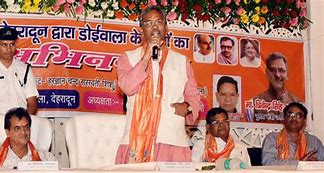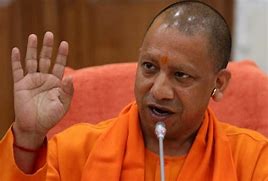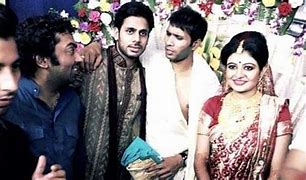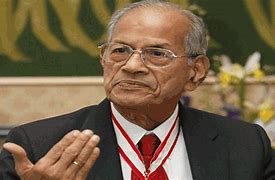National
View: Is Mamata Banerjee scared of the BJP?

For a leader who enjoys a huge majority in the state assembly and faces virtually no credible challenge from her opponents, Mamata Banerjee is surprisingly insecure.
Her uncertainty about her political position could be seen in the violence unleashed by her party men during the panchayat elections last summer when 16,000 of the 50,000 seats went uncontested by the opposition parties apparently because the ruling Trinamool Congress activists scared away all her adversaries.
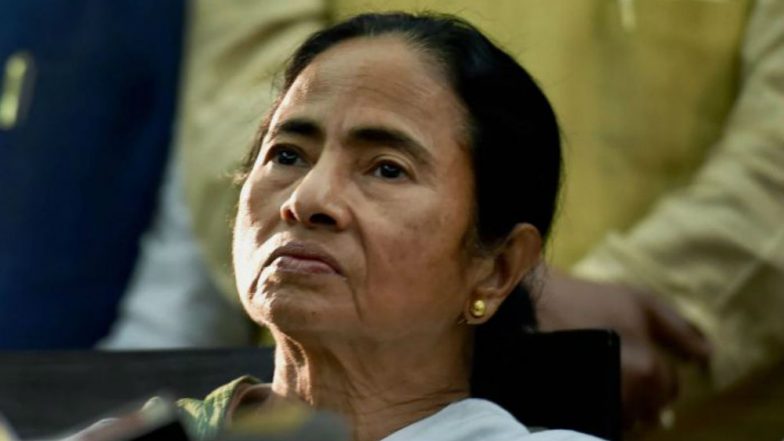
The Supreme Court had expressed shock over the absence – forced or otherwise – of the Trinamool Congress’s opponents in the polls. Now, the Calcutta High Court is considering her trepidations about the proposed Rath Yatras of the Bharatiya Janata Party (BJP). While an earlier judgment rejected the state government’s plea for banning the Yatras by saying that a threat of violence as argued by the government has to be “real, not imaginary or a likely possibility”, a subseauent verdict has favoured a closer look at what the intelligence agencies are saying.
There is little doubt, however, that Mamata Banerjee nowadays regards the BJP as a greater political threat than either the Congress, which has 42 seats in the assembly against the Trinamool Congress’s 213 in the 295-member House, or the Left which has 32. The BJP, in contrast, has three.
What is clearly worrying the Chief Minister is the jump in the BJP’s vote share from three per cent in 2013 to 23 per cent in a by-election this year where it secured the second place, relegating the Congress-Left combine to the third place. Moreover, a survey has predicted the BJP’s emergence as the principal opposition party in the state.
Behind the BJP’s rise is the perception that Mamata Banerjee is rather too lenient towards the Muslims as they comprise 28 per cent of the population. In addition, there is the longstanding problem of illegal immigrants from Bangladesh, who are called “termites” by BJP president Amit Shah.

The Chief Minister’s fear probably is that the proposed Rath Yatras will raise the issue of the “termites” and call for a headcount of the “ghuspetiyas” (infiltrators) under the National Register of Citizens (NRC) in West Bengal, similar to the enumeration that has already been carried out In Assam.
Reports suggest that Rashtriya Swayamsevak Sangh (RSS) foot soldiers are currently active in West Bengal with their propaganda in favour of an NRC on the grounds that if urgent steps are not taken, “then the Bengali Hindus will be aceannihilated”, as an RSS functionary has said.
The state government’s fears about the Rath Yatras are probably based on the fact that the processions taken out by the BJP on the occasion of Navratri with “weapons” in March had led to sporadic communal clashes, although they were not as serious as in neighbouring Bihar.
Although most people in West Bengal will consider Amit Shah’s boast of the BJP winning 22 of the 42 parliamentary seats in the state in 2019 as an instance of hyperbole, Mamata Banerjee cannot afford to take the “threat” lightly, for a rise in the BJP’s number of Lok Sabha seats from the present two with three runners-up will be a blow not only to her political prestige, but also to the state’s self-cultivated Leftist-“progressive” image.
An improved performance by the BJP will also undercut the Trinamool Congress leader’s national ambition as one of the architects of the anti-BJP mahagathbandhan (grand alliance) at the national level and of herself as a possible prime ministerial candidate.

As it is, the violence during the panchayat elections had shown her in poor light. Now, if the BJP Rath Yatras attract sizeable crowds, she will be even more on the defensive.
For a doughty fighter, who had routed the well-trenched Marxists, pushing them into a corner from where they are finding it difficult to emerge, the ascendancy is unthinkable of a north Indian party of vegetarian, cow-worshipping “Hindi-wallahs”, who revere a north Indian god like Ram, as a new member of the Trinamool Congress, who was earlier in the BJP, has said.
Arguably, Mamata Banerjee’s combative instincts are fired up when she has a battle on her hands. But the problem is that her party men are not among the most disciplined. Since many of them have switched to the Trinamool Congress from the Marxist communist party, they have a “history” of being violent.
But it is the BJP which will gain if the party is seen to be specifically targeted. As of now, the judiciary is with her, but she will be on a weak wicket if she tries too deseperately to stop what is undoubtedly the democratic right of an opposition party to take out Yatras. Her desperation can also be construed as a sign of being scared.
National
Foodman Vishal Singh Honored for Hunger Free World Mission in Bangkok

Lucknow: Vishal Singh, a renowned social worker from Lucknow, also known as Foodman, has once again made India proud. He was honored by the Happy Hands Gloves Cooperative Limited Company in Korathai, Thailand, for his work with the Hunger Free World Mission.
The Hunger Free World Mission’s meeting was held in Korathai, Thailand, under Vishal Singh’s leadership. Representatives from several countries, including Mr. Raja Dwivedi (Managing Director of Happy Hands Gloves Limited), Thailand Coordinator Mr. Raja Mishra, and member Mr. Varun Singh, attended the event.

Under Vishal Singh’s leadership, the attendees took a pledge to work together toward creating a hunger-free world.
Speaking on the occasion, Vishal Singh explained that the main goal of the Hunger Free World Mission is social participation. He said the mission is not just about feeding people but also about meeting other basic needs of those who are struggling. The mission focuses on helping families of terminally ill patients in hospitals by providing food and shelter. It also works to fulfill essential needs like education, jobs, and care for the elderly.
For the last 16 years, the Vijay Sri Foundation has been providing free services, benefiting thousands of people. Vishal Singh highlighted that the mission aims to gain global recognition like other organizations such as WHO, WWF, and Red Cross, which work for social causes.
During this meeting, Vishal Singh was appointed as the Chairman of the Hunger Free World Mission by representatives from various countries. They also discussed holding regular meetings in different countries to push the mission forward.
Business tycoon Dr. Abhishek Verma has also supported this humanitarian mission, vowing to promote the idea of “Seva Parmo Dharma” (Service is the highest duty) worldwide. Vishal Singh praised him, stating that people like Dr .Abhishek Verma inspire others to work for the betterment of society.
Recently, Romania’s Ambassador, Mr . Daniela Sezonov Ţane, invited Vishal Singh to the Romanian Embassy in Delhi, where they discussed the mission in detail. Impressed by his humanitarian work, she honored Vishal Singh and invited him to Romania to take the mission forward .
Food man Vishal Singh has been serving the people of India for the past 16 years. Through the Vijay Sri Foundation, he provides free meals to cancer patients & their families ,shelter, and education for women & children along with running free old-age homes in Lucknow.
In addition to his humanitarian work, Vishal Singh also addresses issues like crime and corruption through his role as Chairman of Seva Path Media and Managing Director of Vijay Sri Foundation.

During the COVID-19 pandemic, Vishal Singh and his team worked tirelessly to provide food and help to the needy, including starving children, elderly citizens, and pregnant women. Despite contracting the virus himself, he continued to assist others after his recovery. He even created a life-saving oxygen regulator using household items, which was praised by doctors both in India and abroad.
In his address at the meeting, Vishal Singh spoke about his mission to create a hunger-free world. He pointed out that India’s large population, along with issues like unemployment and poverty, has caused the country to fall on the Hunger Index. He urged people to contribute just one handful of grains daily to help create a hunger-free world.
He concluded by saying that through social participation, we can empower the people around us, meet their basic needs, and work together to build a stronger, more prosperous, and developed society.




